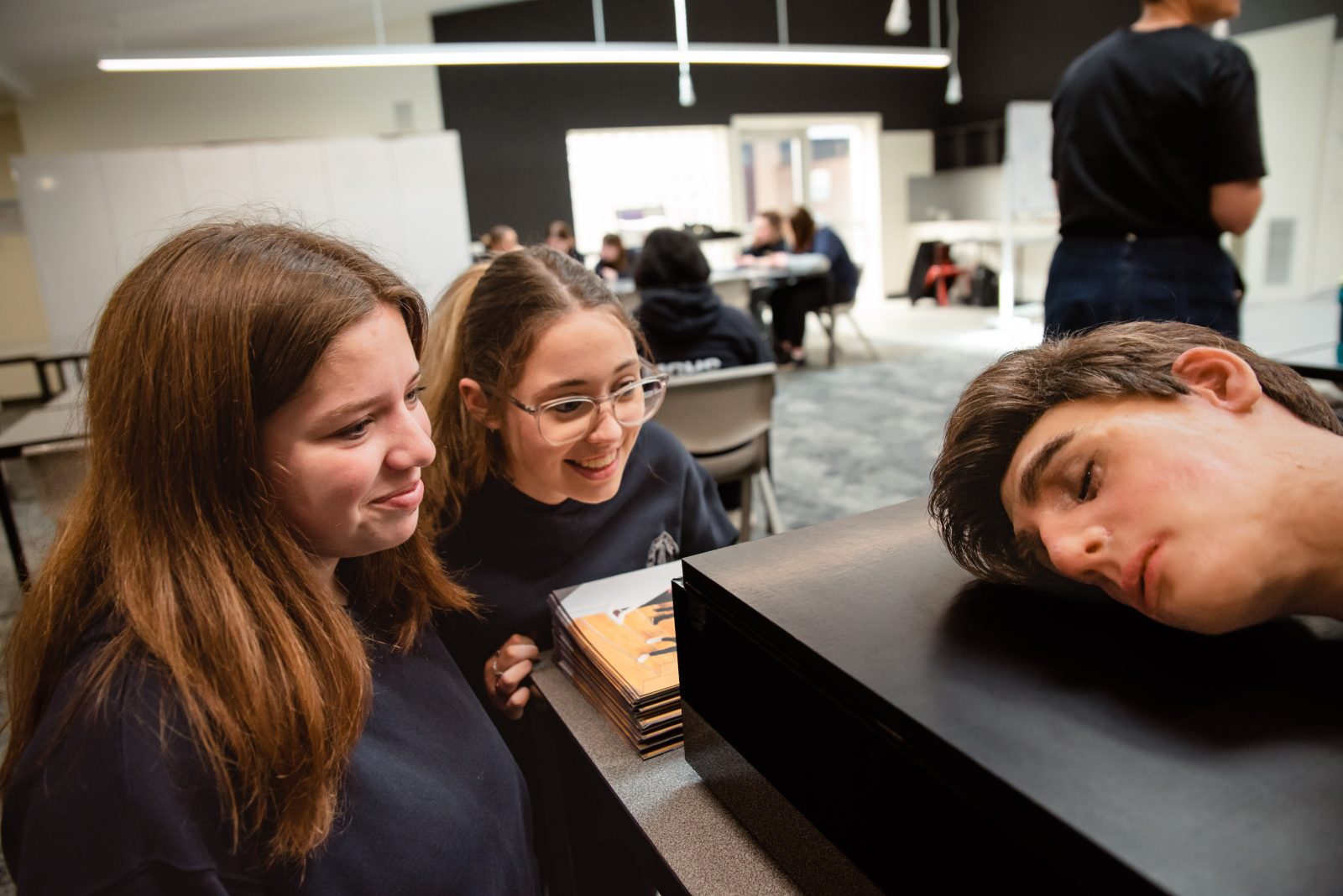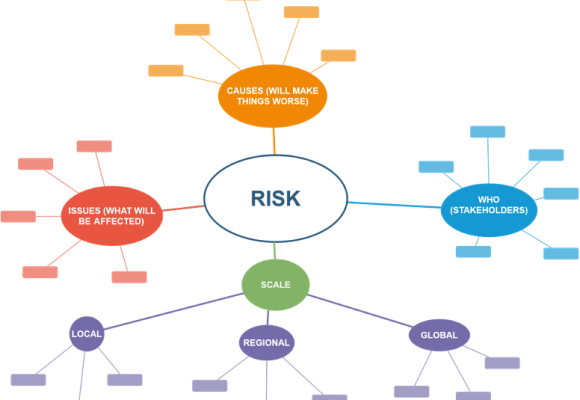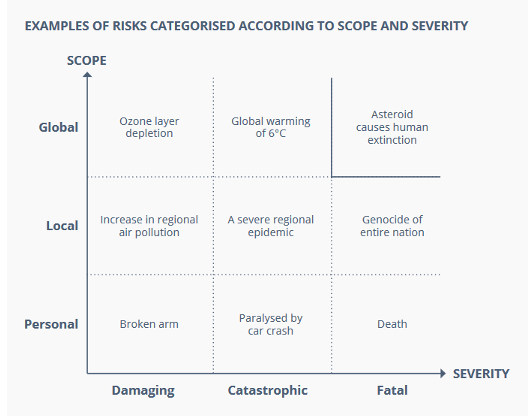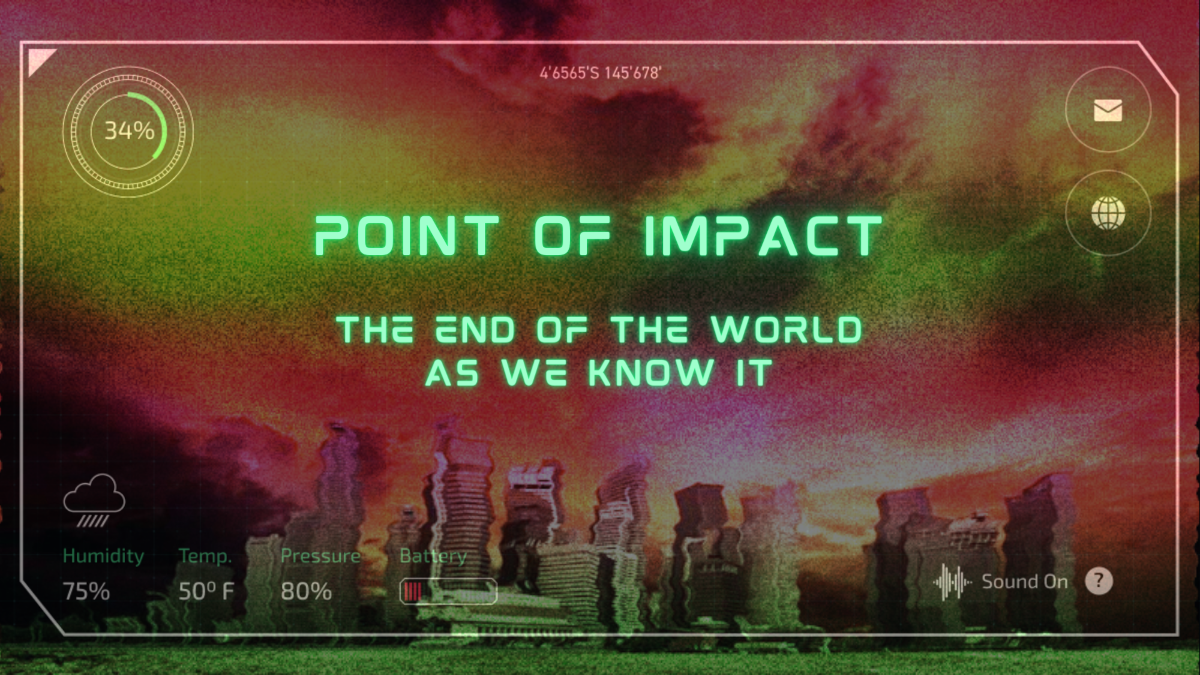
Exhibit Details
Quite often we don’t spend enough time thinking broadly about risks – we are very keen to try solutions or ignore problems.
Being able to map out the major elements in a system, like causes, issues, and affected people, is important for any risk, no matter the scale – local, regional, or global.

MOD. recently travelled to Whyalla to deliver workshops for Year 9 and 10 students about existential risks, narrative storytelling, and serious gaming.
This trip followed our pilot workshops at Mt Gambier High School in September 2022.
Which risks are existential?
Categorising risks depends on scale (how big it is) and severity (how bad it is). Risks may be personal and nothing serious, or they might be devastating and affect everyone on the planet.

It also matters how likely risks are to occur. A large asteroid hitting earth would not end well for us but it’s an extremely unlikely event, while crossing the street without looking is dicing with death. How can we better understand and prepare for risks, and even reduce the likelihood of them happening?
These are the important questions we put to the students before asking them to select a risk and map out the causes, issues, and affected people.
What is the value of narrative storytelling?
Humans love stories. We connect with one another, and the world around us, through the tales that we tell. Narrative storytelling is a way of drawing our attention to things that we might otherwise overlook.
With the help of Alinta Krauth, we selected objects and described some thoughts, feelings and actions surrounding how these objects might change or be affected by a chosen risk.
These stories could then be built into serious games to help explain problems in our environment, and get people thinking about potential solutions.
Credits
- Dr Eric Hsu Research Contributor
- Alinta Krauth Research Contributor



